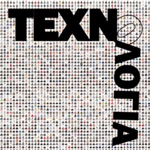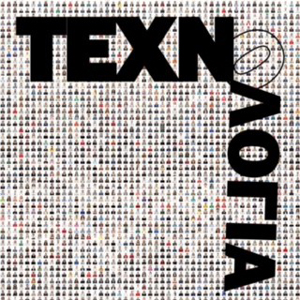The Dawn of Endcore, Shumon Basar, δημοσίευση στο Flash Art [14/12/2022]

—1 —
Is it the end? Has the end finally come? No one is sure exactly when it’s happening. We have waited and waited. A long time now. Our entire lives. We did not know what the end would be like. Could it be here, now?
—2 —
It’s February 24, 2022. Russia invades Ukraine. No, actually, at that point, personification was foremost: Putin invades Ukraine. This signaled a major escalation of the Russo-Ukrainian War, which had begun in 2014. Putin’s latest attack — and associated rhetoric — came with a scale and force that signaled “History” with a capital “H.”
I had just caught COVID-19 for the first time while visiting my parents in England. My throat swelled up to the size of a monstrous grapefruit, covered in razor blades, and I was confined to my teenage bedroom. I remember it being 2:00 a.m. or so. I hadn’t slept in nights because of piercing throat pain. On Twitter came a live, night-vision feed of Russian troops firing at the Chernobyl Nuclear Power Plant. I was aghast. “Who fires at a nuclear power station? Especially at Chernobyl?”
My body was instantly transported back to the mid- 1980s when, at primary school, we would carry out rehearsals of what to do if the Soviet Union fired nuclear missiles at us. Some of you will know the routine: a siren went off, and you had a few minutes to hide under your desk, as if that modest defense would save you from the punishing white heat of the atom bomb.
Watching the grainy, live-feed of Chernobyl in February 2022 — every gunshot registering as a flickering white speck — it felt like the specter of nuclear annihilation was suddenly back, uninvited, having been laid to rest in 1991, when the Soviet Union collapsed.
My first thought that first week of Putin’s invasion was, “Is this the End of the End of History?”
For those of you not familiar with the original version of this phrase — “the End of History” — it was coined by an American political theorist named Francis Fukuyama, first in an essay in 1989, and then in a book from 1992. Its core thesis argued that with the ascendancy of Western liberal democracy — which occurred after the Cold War (1945–1991) and the dissolution of the Soviet Union — humanity reached “not just … the passing of a particular period of postwar history, but the end of history as such: That is, the end point of mankind’s ideological evolution and the universalization of Western liberal democracy as the final form of human government.”
My second thought was, “Is this Endcore?”
— 3 —
Endings may offer the promise of salvation, redemption. Even liberty. But they are also exhausting.
Η συνέχεια εδώ.





